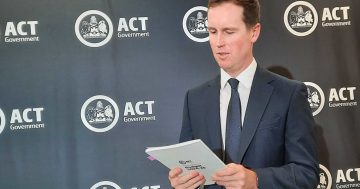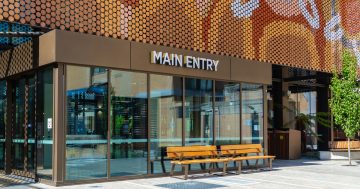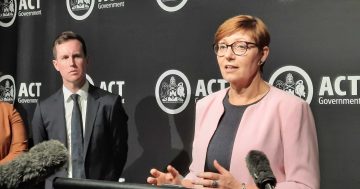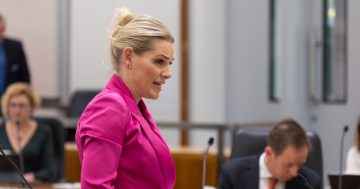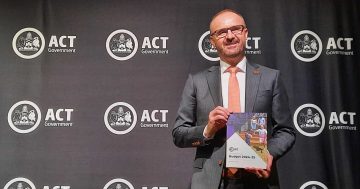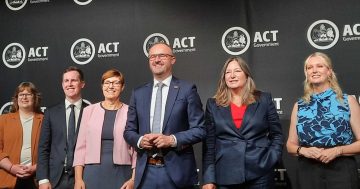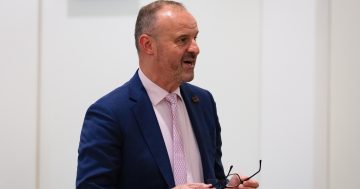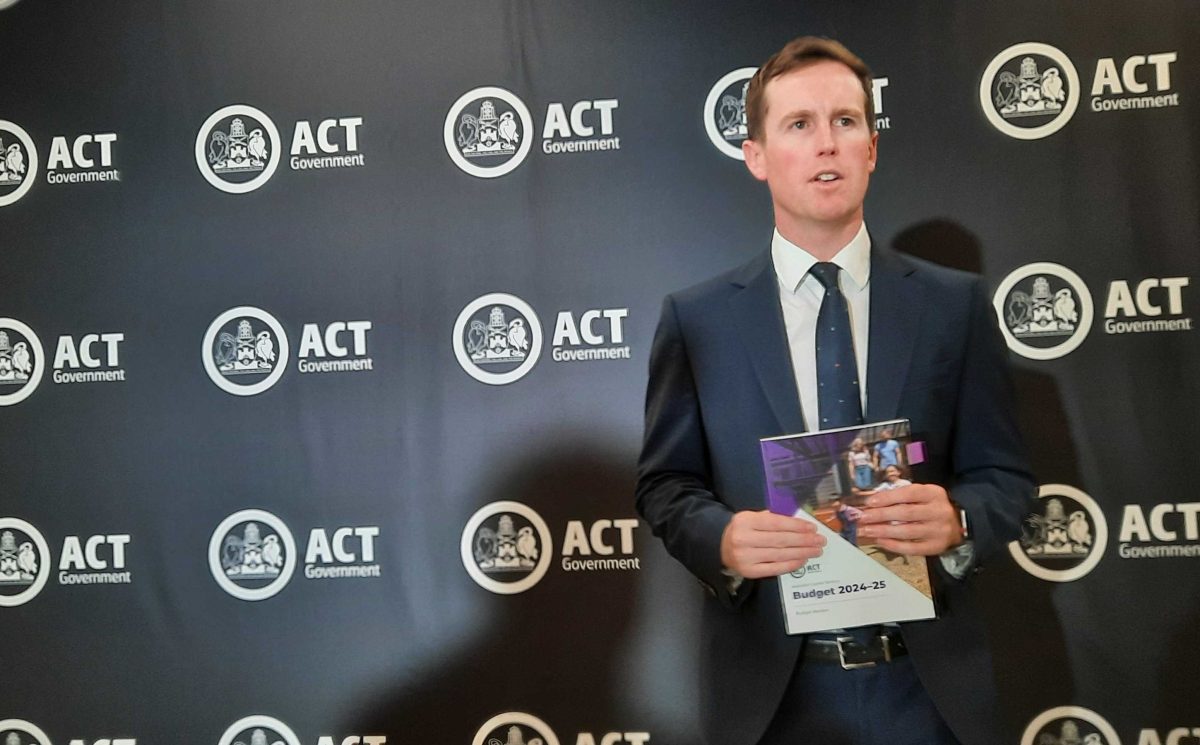
Treasurer Chris Steel says all measures are on the table to make the budget sustainable. Photo: Ian Bushnell.
Treasurer Chris Steel has warned of tough decisions ahead after announcing a revised Budget deficit of almost $1 billion, fed by an “unsustainable” increase in demand for Canberra’s health services.
Mr Steel said that while no decision had yet been made on measures to rein in the deficit, both those on the revenue and spending sides were on the table ahead of the 2025-26 Budget being handed down in June.
In a bid to support the beleaguered health system, spending across the government has been tightened for this financial year with a freeze on the hiring of non-essential staff and the delay of some non-essential programs and payments.
The Mid-Year Budget review shows a deterioration in the ACT’s bottom line from a deficit of $624.1m to a record $971.7m, most of which stems from a $227 top-up for the health system to cope with an unanticipated 16 per cent increase in patient visits.
Other factors include $105 million less under the National Health Reform Agreement, a $22 million drop in own source taxation and a $24 million allocation to out-of-home care.
Despite this, the Budget Review continues to project a return to surplus of $176.7 million by 2027-28.
It also forecasts a billion-dollar turnaround in revenue for the 2025-26 budget, from $7.976 billion to $8.889 billion.
Mr Steel made it clear that getting health spending under control and getting to the bottom of the surge in presentations at ACT hospitals, Walk-in Centres and clinics was crucial to achieving this.
“It is not sustainable to have double-digit increases in healthcare expenditure year on year,” he said.
“We simply cannot sustain that in a budget where healthcare already makes up 34 per cent of the entire expenditure across government.
“So in order to deliver all of the other government services … we do need to look at what we can do to put the budget and healthcare expenditure on a more sustainable footing.”
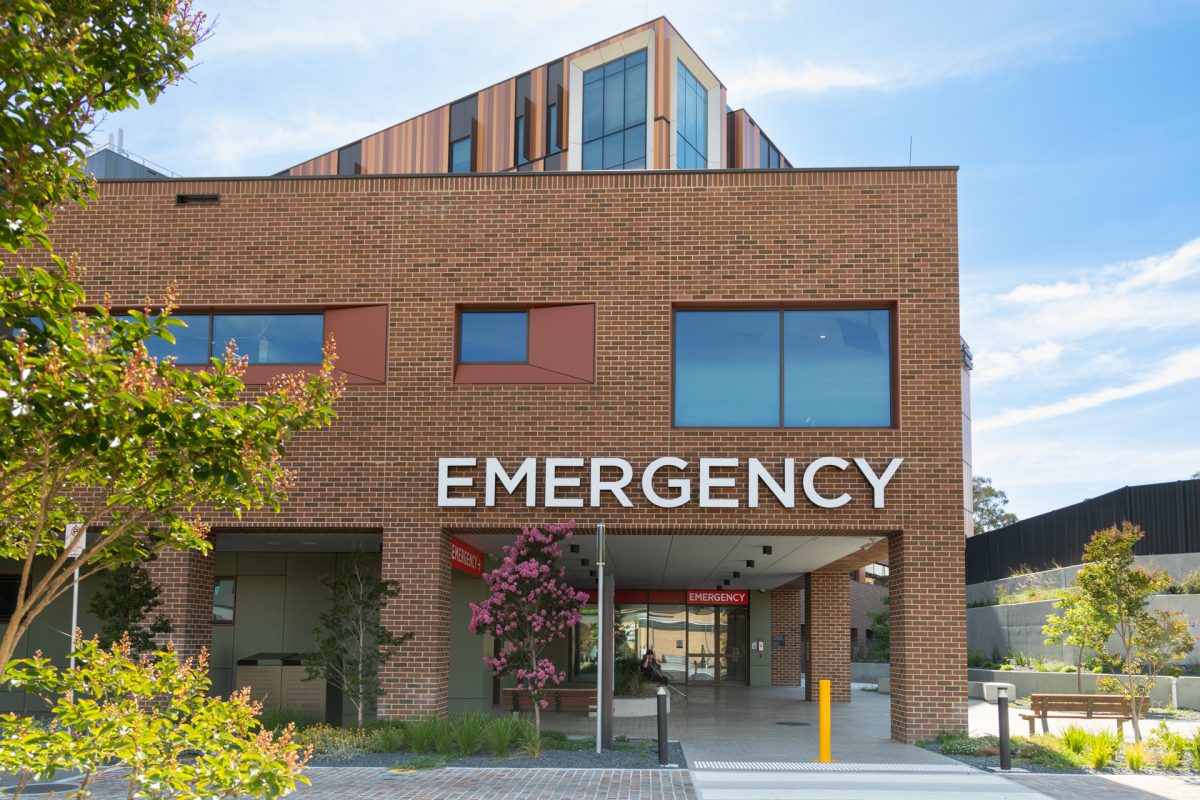
Mr Steel said the ever-increasing demand at Canberra’s hospitals cannot continue. Photo: Michelle Kroll.
Mr Steel said the were tough decisions ahead that would require strong economic management.
Assisting that will be a strong economy growing at more than 3 per cent a year with full employment, falling inflation and interest rate cuts on the horizon.
But Mr Steel said Canberra Health Services was looking at savings across the system beyond those announced last week by Health Minister Rachel Stephen-Smith.
The ACT would also be negotiating with the Commonwealth for a better deal on health funding and with the states, particularly NSW, to pay their way on interstate patients being treated in Territory hospitals.
The Budget Review does not include an extra one-off payment of $50 million from the Commonwealth, announced on Wednesday as part of a one-year rollover of the National Health Reform Agreement.
Carefully avoiding words such as tax increases or cuts, Mr Steel would not rule anything out or in, but the government would be looking “right across the board” at existing programs.
The government was still committed to delivering on its election commitments, but Mr Steel said the government would have to look right across the budget to make sure it was sustainable to deliver them.
Its $8 billion infrastructure program, including the new Northside Hospital, appears to be safe, with Mr Steel saying a growing city needed these projects, and “we can’t step back from that”.
Asked if more land sales were possible to boost the coffers, Mr Steel said there was already a strong land release program, but he planned regulatory and zoning changes to unlock more housing, especially along transport corridors, to increase economic activity.
Net debt has also increased by $173 million and is expected to grow over the next four years to nearly $13 billion, reflecting the infrastructure program, but Mr Steel said the government was in a good position to service and manage that debt.
He said the infrastructure investments would benefit future generations.
“They’re important investments that we need to make that will benefit people for the long-term, but there’s no doubt that there’s work ahead to support a sustainable budget as well,” he said.












